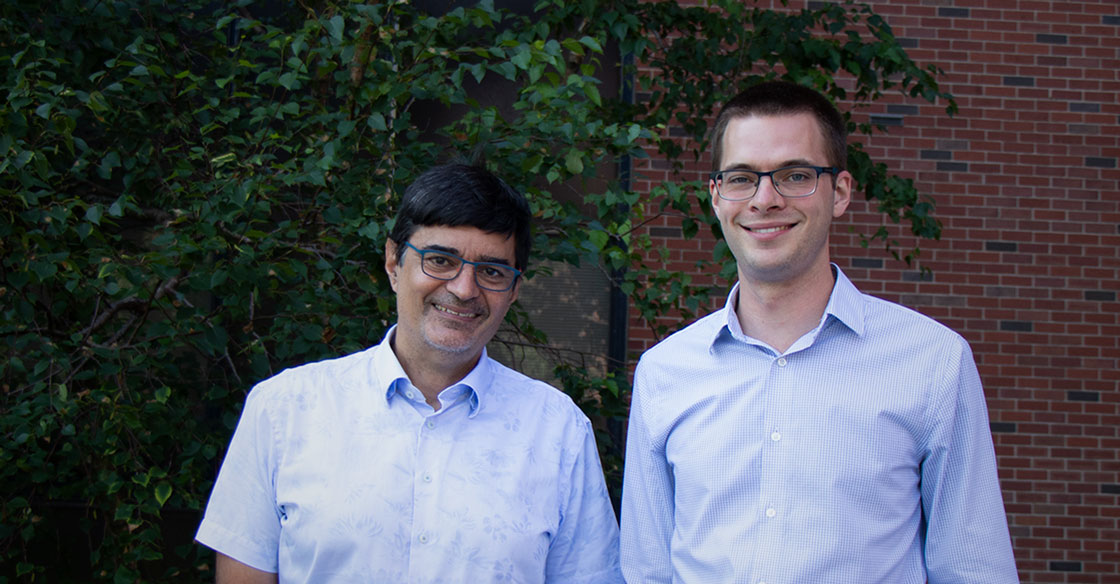
Dr. Corey Smith, Assistant Professor at Dalhousie University and Affiliate Scientist at Nova Scotia Health, is the first QEII Foundation Scholar in Retina Research. Dr. Smith’s work is supported by a $1.5 million endowment, funded entirely by QEII Foundation donors.
This brand-new position will exist in perpetuity, with protected funds dedicated to retina research. The retina is the part of the eye that senses light and sends signals to the brain. While the research will encompass retinal disease broadly, the two most common retinal diseases are age-related macular degeneration and diabetic retinopathy.
Dr. Smith and team will help in the detection, investigation – and ultimately, better care of – retinal diseases, for the many individuals impacted locally.
Working with patients in the QEII Eye Care Centre, Dr. Smith is excited to get started. “My interests and background are in medical imaging – so a big focus on my work will be on diagnosis, better understanding these diseases, identifying new markers, and improving ways to image the eye,” says Dr. Smith.
Macular degeneration is the primary cause of vision loss in older adults, says Dr. Marcelo Nicolela, department head at the QEII’s Eye Care Centre. And both macular degeneration and diabetic retinopathy, if left untreated, can lead to blindness – irreversible and life-altering. The QEII Eye Care Centre is a specialized clinic, serving patients from all over the Atlantic Provinces. With more than 50 thousand patient visits per year, the clinic helps many patients with a variety of diseases affecting the retina.

Left to right: Dr. Marcelo Nicolela, head, QEII Eye Care Centre and Dr. Corey Smith, QEII Foundation Scholar in Retina Research
“We have an aging population, so I think that speaks to the importance of this research. We also have a high prevalence of diabetes on the East Coast when compared with other provinces,” says Dr. Smith.
These common conditions can result in the inability to read, drive or recognize faces, for example – dramatically impacting quality of life.
Dr. Nicolela says the department is excited to see this dedicated research role come to life. “Imaging in ophthalmology has really exploded over the past few decades,” he says. Today, a patient arrives at the clinic, sits down in front of a machine and within minutes the team has access to incredible imagery – all noninvasively.
“There is no other part of the body where you can get that kind of information,” Dr. Nicolela says. And Dr. Smith’s work will help maximize the use of all this information to help patients.
“Dr. Smith will have access to all the latest technologies,” he says. “The Eye Care Centre continues to receive support from QEII Foundation donors – from research opportunities to technologies in our clinics. Without donors, this work would not be possible,” he says.
Dr. Smith is most excited about being able to use new and existing technologies at the QEII to the best of their ability to improve patient care. “The collaboration between the scientists, clinicians, support staff and trainees is what will allow us to achieve that goal.”